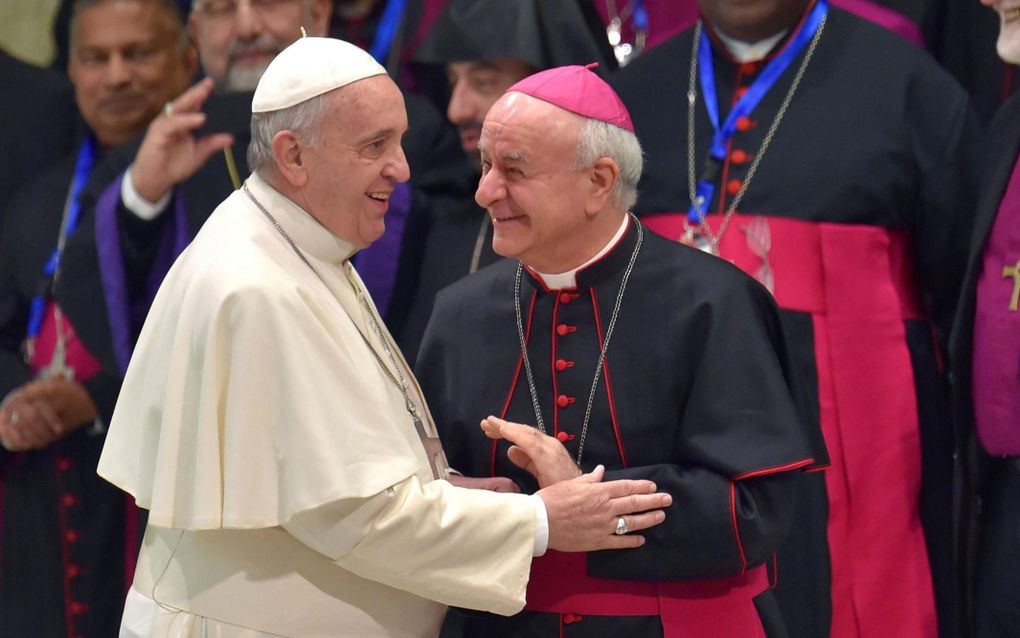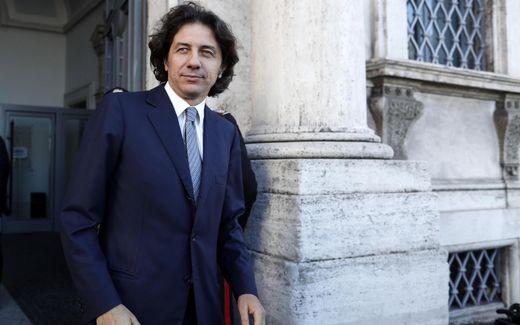How the Vatican changes course regarding end-of-life issues
17-08-2024
Southern Europe
Aart Heering, RD

Monsignor Paglia (right) with Pope Francis. Photo EPA, Ettore Ferrari
Southern Europe
The worldwide centre of the Roman Catholic Church wants to have an “open debate” about the issue of the end of life, which can also positively influence political choices.
On the one hand, the Vatican continues to reject euthanasia and assisted suicide. However, it also notes that advancing science does not always make it easy to draw boundaries sharply. Similarly, the Roman Catholic Church rejects aggressive medical treatment of people who are dying.
The Pontifical Academy for Life writes this in an 88-page “Small lexicon of the end of life”. Its president, Monsignor Vincenzo Paglia, presented this booklet to Pope Francis last week.
The academy’s position is not revolutionary. When presenting the document to the press, Paglia argued that it is essentially a logical continuation of previous Vatican documents on the end of life.
Change of course
Nevertheless, it does represent a change of direction from the “non-debatable ethical values” from which the topic was still approached under Pope Benedict XVI.
For instance, according to the new document, it may be acceptable to stop hydration and artificial nutrition under certain circumstances when the patient consciously requests it. This also applies when he is no longer capable of doing so but has recorded this wish in a biological will.
When the patient is in a vegetative state, we should ask ourselves what treatment is still proportionate, Paglia said. The choice has to be made on a case-by-case basis, with the preferred option being palliative cures.
In a democratic and pluralistic society, the prelate argued that exchanges between different viewpoints should be possible. “This is not about denying principles but finding solutions that help the whole community. The issue of the end of life affects us all and should not be sandwiched between extreme and extremist positions. We have to realise the situation’s complexity and therefore not erect barricades but invite an open debate that can also influence political decisions.”
Italy
The “Small lexicon of the end of life” is mainly inspired by the situation in Italy, where euthanasia has been a hotly contested political-legal issue for more than two decades. The country has no legal regulation for it, and successive bills invariably fall into political disputes, with party interests usually taking precedence over ethical considerations.
As a result, the policy is now chaotic. Defendants are usually acquitted in the absence of clear guidelines, and terminal patients are regularly smuggled across the border to euthanasia clinics in Switzerland.
In the absence of legislation, the Constitutional Court of Italy has ruled twice –in 2019 and last month– that assisted suicide is not punishable in all cases. In doing so, the court instructed parliament to finally develop a law so that Italian judges know where they stand. But in vain: few Italian politicians are keen on tackling an unpopular issue like this. In 2022, an attempt was made to remove the section “murder with the consent of the victim” from the Penal Code by popular vote. The Constitutional Court rejected that application, but the debate over it prompted the Roman Catholic Church to contribute in the form of the lexicon now presented. Its purpose is to “seek the broadest possible agreement, with a view to legislation that considers human welfare and a correct scientific approach,” Paglia explained. He added that adapted texts for other countries are in the pipeline.
This article was translated by CNE.news and published by the Dutch daily Reformatorisch Dagblad on August 14, 2024
Related Articles







